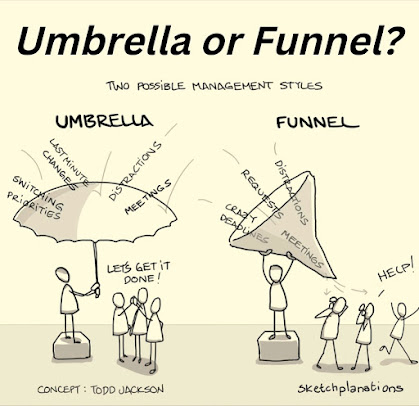Introduction
In any organization, managers play a critical role in supporting their direct reports and ensuring they can work productively and effectively. One of the most significant challenges that managers face is shielding their team from last-minute changes, shifting priorities, and other distractions that arise from higher up in the organization. Here are some tips for managers to help mitigate these distractions and support their team's productivity.
Establish clear priorities and communicate them regularly
One of the most effective ways to reduce last-minute changes and shifting priorities is to establish clear priorities upfront and communicate them regularly. This helps ensure that everyone on the team is on the same page and understands what is expected of them. Encourage open communication, so your team members feel comfortable discussing any concerns or questions they have. Create a buffer
As a manager, it's important to anticipate the possibility of last-minute changes or shifting priorities. To protect your team from these distractions, create a buffer in their work schedule. Build in some extra time to allow for unexpected changes or emergencies. This can help reduce stress and ensure that your team members have the time and space they need to complete their work effectively.Be flexible
Flexibility is key to managing last-minute changes and shifting priorities. As a manager, you must be willing to adapt and change direction quickly if necessary. Encourage your team to be agile and adaptable, and provide them with the resources and support they need to do so. This can include additional training, access to new tools or software, or other resources that can help them stay on top of changes.Provide regular feedback and support
Regular feedback and support are critical to helping your team stay on track and manage distractions effectively. Provide constructive feedback on their work and offer guidance and support as needed. This can help your team members feel supported and confident in their ability to handle unexpected changes or shifting priorities.Advocate for your team
As a manager, you are in a unique position to advocate for your team and protect them from unnecessary distractions or disruptions. If you are aware of upcoming changes or shifting priorities that could impact your team, communicate this information to them as soon as possible. Advocate on their behalf if necessary, and work with other managers or stakeholders to find a solution that works for everyone.Conclusion
In conclusion, managing distractions and shifting priorities is a significant challenge for managers in any organization. By establishing clear priorities, creating a buffer, being flexible, providing regular feedback and support, and advocating for your team, you can help mitigate these distractions and support your team's productivity. Remember, your role as a manager is to help your team be successful, and by taking proactive steps to shield them from distractions, you can help them achieve their goals and reach their full potential.



